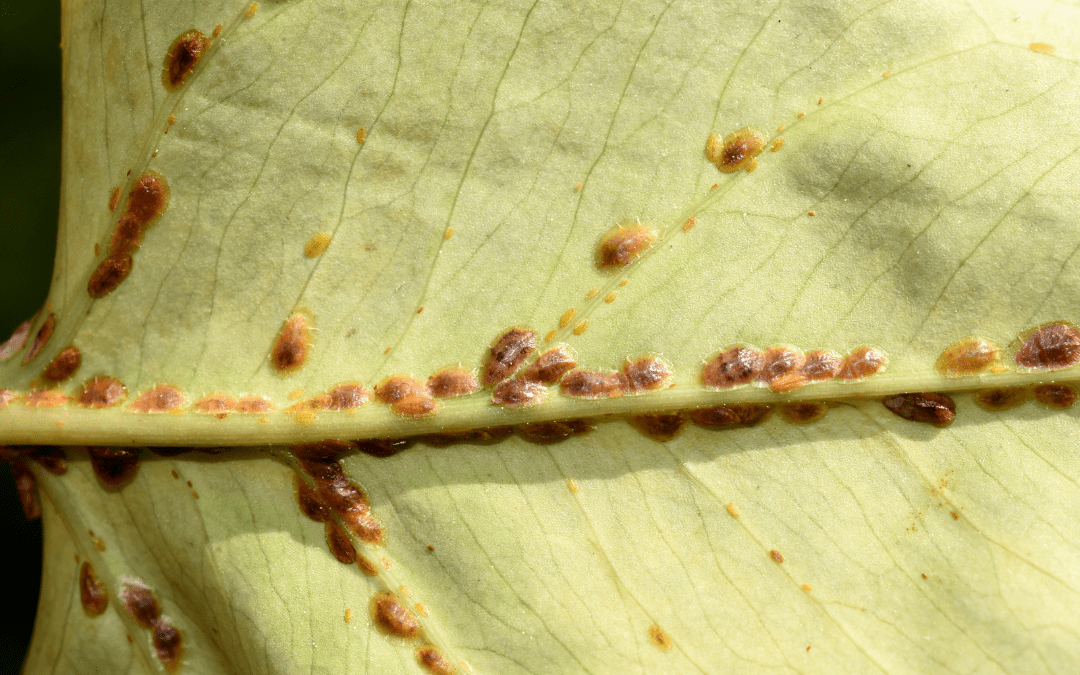Scale pests are a common problem for gardeners and plant enthusiasts in San Antonio, Texas. These tiny insects attach themselves to the stems and leaves of plants, sucking out the sap and causing damage to the plant. If left untreated, scale infestations can kill plants and spread to other nearby plants.
How Scale Presents and How To Treat It
Some of the most common plants that scale tends to infest in San Antonio include citrus trees, camellias, hollies, and gardenias euonymus, photinia, bay laurels, hollies, boxwoods, but it can be found on other plants as well. Scale tends to attack houseplants over winter. All of these plants are particularly susceptible to scale because they have a waxy coating on their leaves that provides a good surface for scale to attach to. (Pics of scale on houseplants below.)
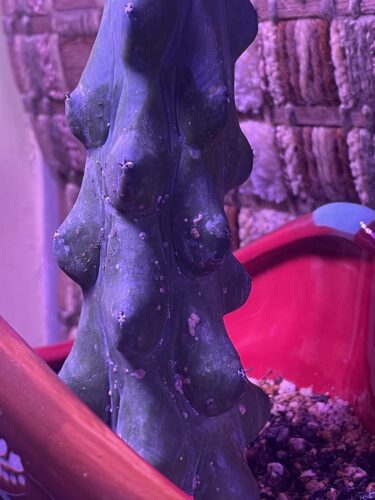
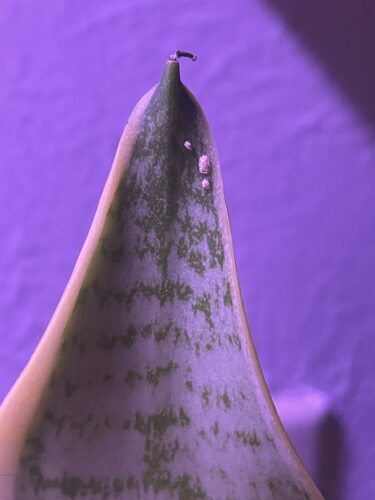
Scale presents as small, flattened bumps or nodules on plants. They can be found on stems, joints, leaves, and even on fruits. They don’t look like regular bugs. They appear more like little growths; sometimes brown, gray or whitish. Once they pierce the plant, they become immobile as they adhere and suck out the plants’ vital juices.
You might not notice them at first. You may see wilting of your plants, or yellowing of leaves as the first signs. A week later you might notice the plant looking worse for wear, and are those little specks on your leaves and stems? You try to rub them off and you’re now horrified to see that they aren’t budging! You run in for a magnifying glass, and gasp, those spots are bugs! It’s easy to freak out over scale. It DOES spread easily and it CAN be hard to treat. But you CAN treat it and you CAN prevent it.

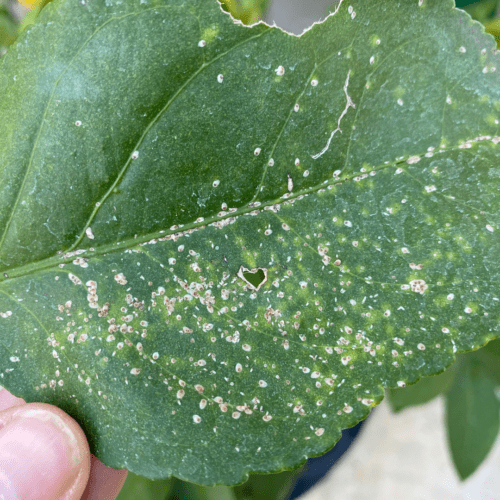
An exception to applying horticultural and dormant oil in winter is on citrus trees. Citrus should only be sprayed in summer (but you’ll have to make sure you don’t spray when temperatures are too high; see more below.) Reading the instructions found on the back of your product can be eye-opening and plant-saving! Unfortunately, it’s my citrus tree that currently has scale, but fortunately we have another product to treat scale. Bonide Captain Jack’s Orchard Spray can be used up to the day of harvest on listed edibles. It’s active ingredients are sulfur and pyrethrin. This is the product I chose to treat my citrus this December.
It’s always best to prevent scale than end up with having to control an infestation, like I am. Winter is a good time to preventively treat the plants mentioned earlier and other deciduous trees, fruit (except citrus at this time), and nut trees that are dormant and not in bloom.
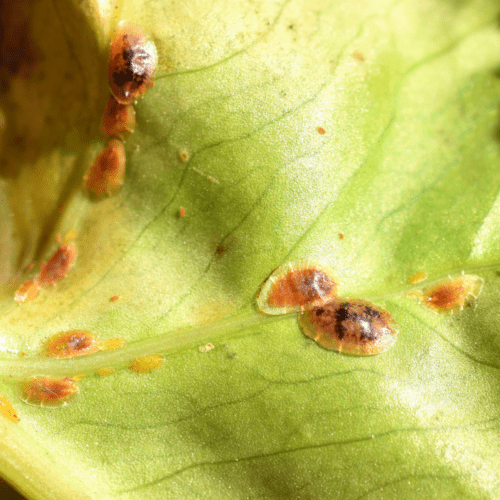
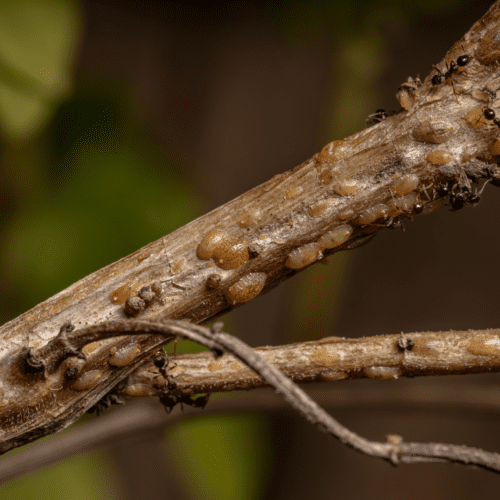
When it comes to controlling and preventing scale, there are both organic and synthetic options available. Bonide All Seasons Horticultural and Dormant Oil is an organic product which suffocates the scale insects by coating them in oil and preventing them from breathing. Suffer little suckers, suffer!
For preventing scale, horticultural and dormant oil is the way to go. It’s safe for most plants (read label for exclusions) and can be applied with a hose end sprayer or by hand sprayer. When applying, make sure temperatures are no higher than 85°F and no lower than 40°F. Also avoid spraying within 3-4 days of a predicted freeze if possible. If you can spray in the evening when the bees and butterflies have tucked in for the night, it would be ideal.
There are a variety of systemic insecticides available that are specifically designed to control scale. These insecticides contain chemicals that disrupt the scale’s life cycle and kill them. Applying them to the soil around susceptible plants in early spring can also help avoid an infestation of scale. However, it’s important to carefully follow the instructions on the label and avoid using these insecticides on plants that are not listed as safe. You should also keep in mind that systemic insecticides are very harmful to beneficial insects and other wildlife. We like to suggest trying the least toxic option before resorting to systemic insecticides.
While scale pests can be a frustrating problem, there are effective ways to control them. Take proactive measures this winter, keeping a close eye on your plants and you can help prevent scale from becoming a serious problem in your garden.
~The Happy Gardener, Lisa Mulroy

